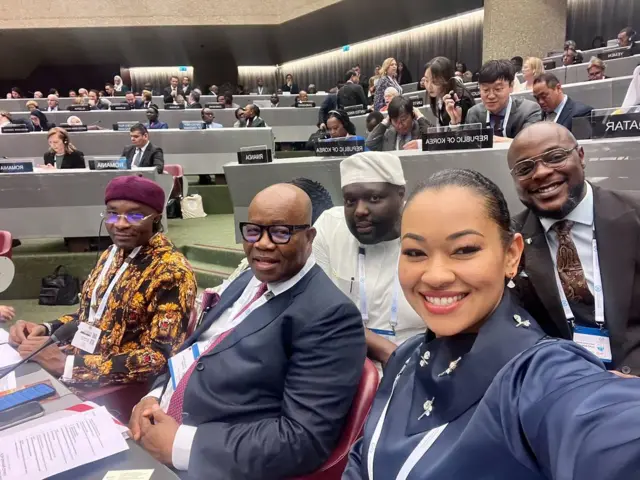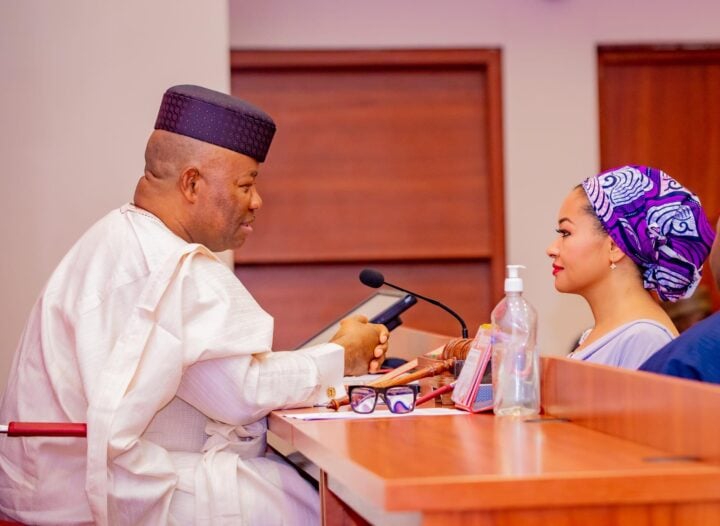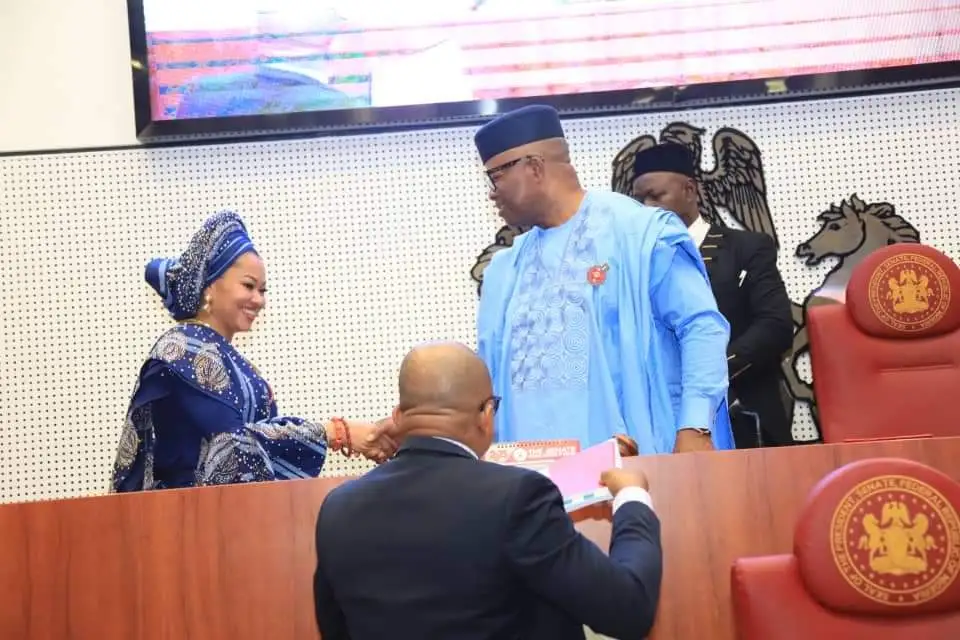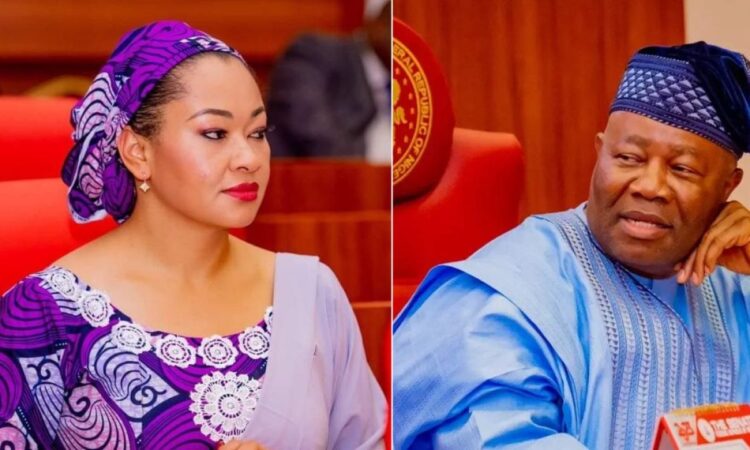In the latest bout of parliamentary theatrics, the Nigerian Senate has once again become a stage for raw political power plays. The incident—a seat relocation dispute that swiftly morphed into a defamation lawsuit—reveals as much about the fragility of legislative decorum as it does about the entrenched struggles for power and recognition in our polity.
It all began when Senator Natasha Akpoti-Uduaghan, representing Kogi Central, discovered that her long-assigned seat in the red chamber had been reallocated without her prior knowledge.
Interpreting this sudden change as a deliberate move to sideline her contributions, she boldly refused to comply. Her defiant stance not only ignited a heated exchange with Senate President Godswill Akpabio but also set the stage for a broader conflict over parliamentary procedures and the sanctity of individual privileges within the institution.

The controversy deepened when a Facebook post—allegedly issued by an aide acting at the behest of the Senate leadership—mocked her legislative competence, suggesting that her role was little more than “pancaking her face and wearing transparent outfits” in the chamber.
Taking umbrage at what she deems a malicious attempt to tarnish her reputation, Senator Akpoti-Uduaghan has since filed a defamation lawsuit demanding astronomical damages. With claims seeking N100 billion in general damages plus additional litigation costs, this legal battle is not just about a seat; it is a clash over respect, dignity, and the rules that are meant to govern our legislative processes
As a political analyst with over two decades in the field, I see this confrontation as symptomatic of a larger malaise within our political institutions. On the surface, the dispute centers on procedural adherence—indeed, the Senate Standing Rules explicitly dictate seating arrangements and the manner in which contributions should be made from assigned seats.

However, the real story is one of power dynamics, partisan realignments, and, arguably, gendered undertones. Some colleagues have even made offhand comments about the “difficulty of fighting a woman” in the chamber, suggesting that beneath the veneer of rule-bound decorum lies an undercurrent of chauvinism and political bullying.
Moreover, the rapid referral of the matter to the Senate’s Ethics, Privileges, and Public Petitions Committee indicates that the leadership is intent on containing what it sees as “unruly conduct” rather than engaging with the legitimate concerns raised by a colleague who feels systematically marginalized.
It raises a disconcerting question: Are we witnessing a genuine effort to enforce discipline, or is this a pretext to silence dissent and maintain a rigid hierarchy that stifles fresh voices in our legislative process? In many ways, the episode mirrors broader national debates about accountability and transparency in governance, where rules designed to ensure order are sometimes weaponized against those who dare challenge the status quo.

In my few years of political observation, few episodes have been as emblematic of Nigeria’s deep-seated institutional challenges as this. The Senate, ideally a forum for robust debate and thoughtful lawmaking, risks being reduced to a spectacle of personal vendettas and partisan theatrics. If the chamber’s focus shifts from deliberative processes to managing internal conflicts, then the public—and indeed our democracy—loses a vital space for accountability.
Ultimately, the clash between Akpabio and Akpoti-Uduaghan is more than an isolated altercation over seating arrangements. It is a microcosm of the broader tensions plaguing our political landscape: the struggle for voice, the interplay of gender and power, and the ongoing battle between rigid institutional control and democratic dissent. One can only hope that this episode will prompt introspection and reform, so that the Nigerian Senate may one day reclaim its intended role as the crucible of national progress, rather than a battleground for personal grievances.






































Discussion about this post